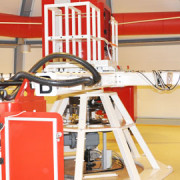Stress Physiology
Plants are dynamic and very sensitive organisms that actively and competitively forage for limited resources. They are bound to places, and for this reason they have developed an exceptional plasticity in term of adaptation.
The environment affects plants in many ways. Biotic factors results from the interaction with other organisms: infections, mechanical demage, herbivory and so on; abiotic factors include temperature, humidity, light intensity, supply of water etc.
Deviations from the physiological normal condition results in a stress situation that might reduce or change plant’s growth and development.
If the stress is moderate and short term, the injury may be temporary and the plant may recover when the stress is removed. If the stress is severe enough, it may prevent flowering, seed formation, and induce senescence that leads to plant death.
Plants respond to stress in several different ways. In stress-tolerant plant species, exposure to a particular stress leads to acclimation to that specific stress in a time-dependent manner. The acclimation process in stress-resistant species is usually reversible upon removal of the external stress.
In our study , we focus mainly on abiotic stresses (Such as freeze, chill, heat, drought, flood, salty, and heavy metals) and their effects on the different physiological process in plants.
LINV projets:
• Salinity stress: Salinity is considered as one of the most important issues that affects plants in many regions of the world, especially in Mediterranean basin and due to the global climate changes it is becoming a real threat for agriculture.
Salt tolerance in plants varies considerably among species and depends on cultural conditions. Each plant has a tolerance concentration threshold, above which, growth and yield decrease with increasing salinity.
In our lab we study the effects of salinity on different plant species, (olive trees, cucumber, broad bean, spinach etc) and how to improve plant tolerance acting at a physiological level.









